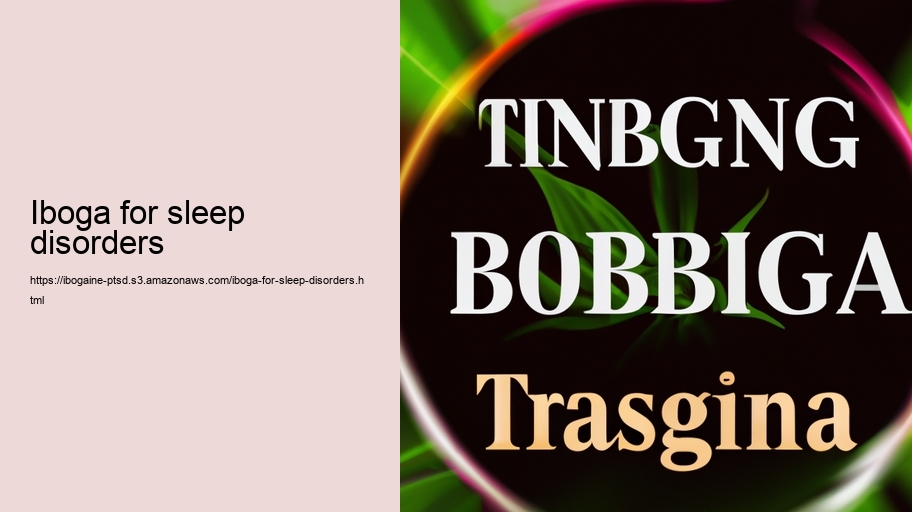Title: Exploring the Potential of Iboga in Treating Sleep Disorders
The quest for a peaceful night's sleep is as old as humanity itself. In our modern era, characterized by screens that glow late into the night and lifestyles that often disregard the natural rhythms of day and night, sleep disorders have become increasingly prevalent. Amidst a plethora of conventional treatments ranging from pharmaceutical solutions to cognitive-behavioral therapy, there lies an unconventional potential remedy that hails from the roots of an African shrub—iboga.
Iboga, scientifically known as Tabernanthe iboga, is a perennial rainforest shrub indigenous to West Africa, particularly Gabon, where it has been used for centuries by the Bwiti spiritual tradition for healing and ritual purposes. The root bark of this plant contains ibogaine—a psychoactive alkaloid with profound effects on both mind and body.
The use of ibogaine in Western medicine has primarily centered around its application in addiction therapy. With its unique ability to interrupt substance dependency patterns, ibogaine offers hope to those grappling with chronic addictions. However, its potential benefits may not be limited to addiction; emerging research suggests that this powerful compound could also play a role in addressing sleep disorders.
Sleep disorders encompass a wide range of conditions—including insomnia, sleep apnea, narcolepsy, and restless leg syndrome—that interfere with quality restorative rest. Conventional treatments can be effective but often come with side effects or dependencies. Hence the need for alternative therapies arises—a niche where iboga might shine.
Ibogaine impacts neurotransmitter systems involved in regulating mood and wakefulness. Its interaction with serotonin receptors indicates a possible mechanism through which it could influence sleep patterns. Anecdotal reports suggest that users experience vivid dreams during their encounters with ibogaine and a subsequent period of deep restfulness following its use.
However intriguing these accounts may be, they do not constitute scientific evidence—this is where caution must be exercised when considering iboga for therapeutic purposes related to sleep disorders. There are risks associated with its use; without proper medical supervision, taking iboga can lead to severe cardiac issues among other complications due to its ability to alter heart rhythm.
Clinical studies specifically targeting the efficacy and safety of using ibogaine for sleep disorders are scarce. It's essential not only to build upon current knowledge through rigorous research but also ensure ethical practices when investigating indigenous plants like iboga outside their traditional context.
In conclusion, while the prospect of using Iboga as a treatment for sleep disorders presents an exciting frontier in alternative medicine, it remains largely uncharted territory within scientific circles. More than just respect for legal boundaries (ibogaine is classified differently across nations), there must be profound respect for cultural heritage — acknowledging indigenous wisdom while cautiously navigating toward potential new applications in our globalized world's healthcare system.
The path forward should involve international collaboration among researchers, healthcare providers, policymakers, and indigenous communities—with patient safety at the forefront—to explore how we might responsibly harness Iboga's full therapeutic spectrum.
